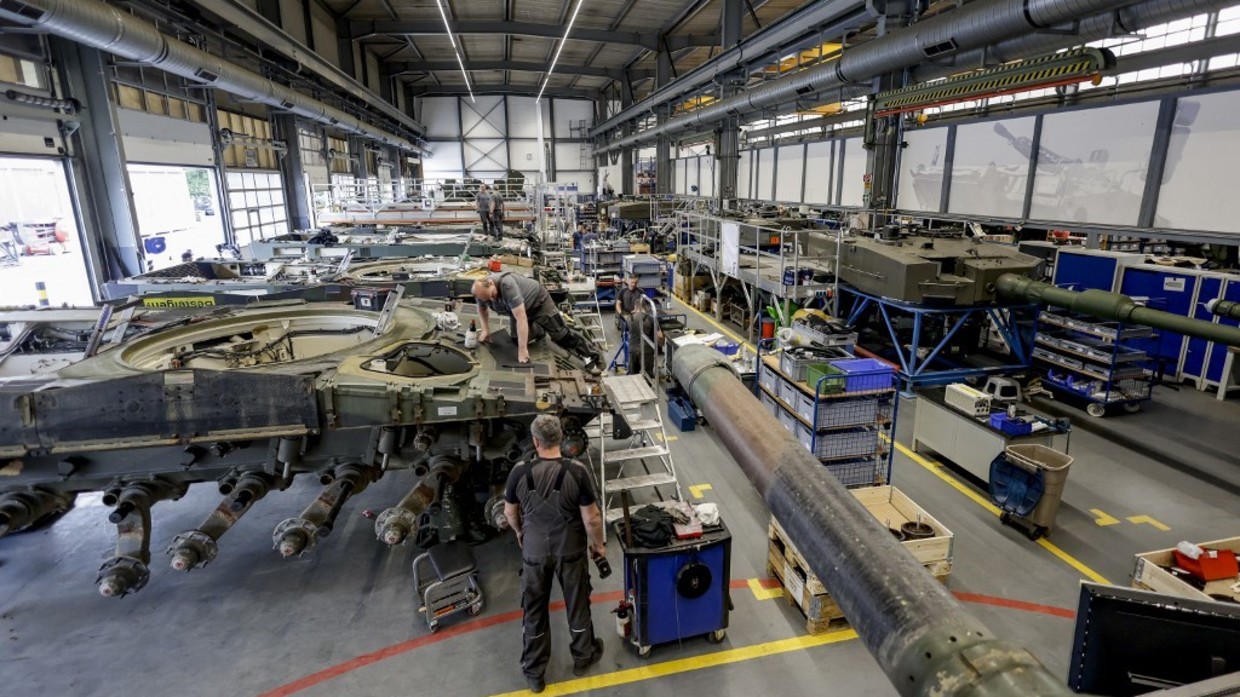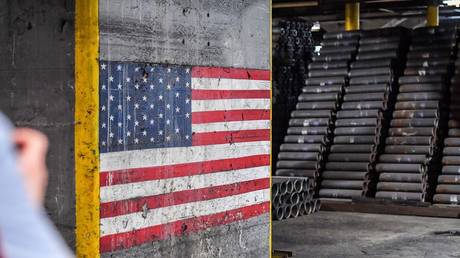Rheinmetall, Germany’s leading arms manufacturer, has announced that it almost doubled its operating profit in the first half of 2024, and now has a record backlog of orders worth more than $50 billion. The company said the Ukraine conflict had “significantly improved business performance.”
In a statement on Thursday, the Dusseldorf-based firm said sales in the first half of this year had increased by a third to €3.8 billion ($4.14 billion), while operating profit increased by 91% to €404 million ($440 million). The company’s order book is now worth a record €48.6 billion ($53 billion), the statement boasted.
“Business with the armed forces of Germany and partner nations in the EU and NATO along with assistance to Ukraine continue to significantly improve business performance,” it read.
Before the conflict in Ukraine began, sales of parts for the civilian automotive industry accounted for more than a third of Rheinmetall’s business. However, the company’s civilian sales have fallen, while demand for its military products – including tanks, armored vehicles, artillery, and air-defense systems – have exploded.
Rheinmetall is currently building a new plant in Lower Saxony, which is expected to produce around 100,000 artillery shells annually from its second year of operation onwards. In May, the company said it was aiming to build 700,000 of these projectiles across all of its factories by next year.
This increase in supply is unlikely to meet Ukraine’s demand. Earlier this year, Ukrainian officials announced that they would need 20,000 155mm shells per day to match the output of Russia’s guns. Ukraine’s shell consumption, combined with demand for the same ammunition from Israel and rising energy costs in Europe, has driven the price of a single 155mm shell to between $5,000 and $10,000, Defense News reported in June.
Last year, Rheinmetall said shell prices would likely rise further as the Ukraine conflict drags on.
Rheinmetall opened a tank maintenance hub in western Ukraine in June, and plans to build further ammunition and air-defense factories on Ukrainian soil. Russia has warned that it would consider these facilities “legitimate targets,” and this risk of Russian strikes has reportedly scared Rheinmetall’s American competitors away from investing in Ukraine.


